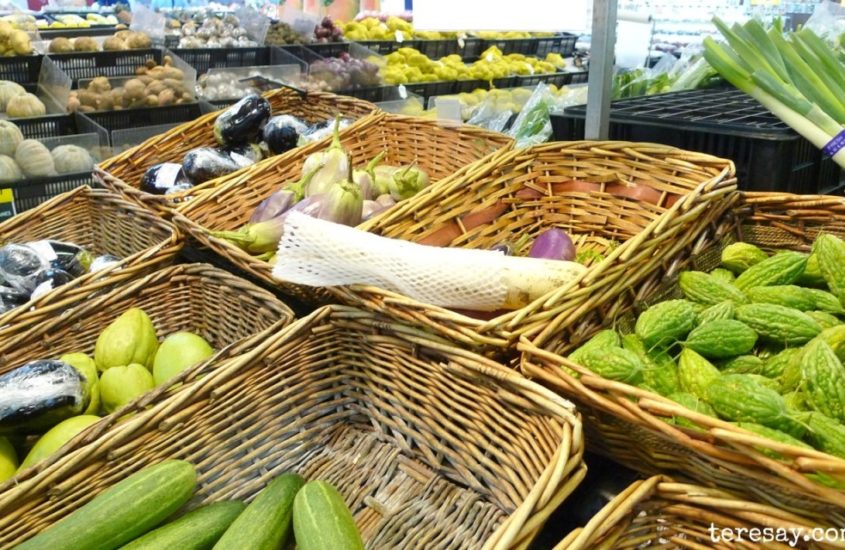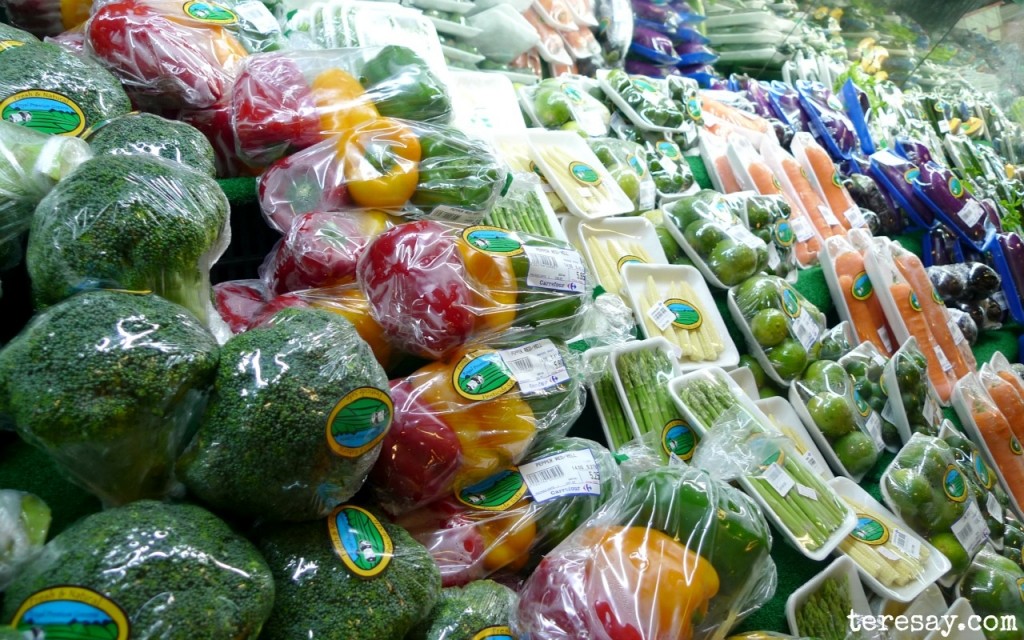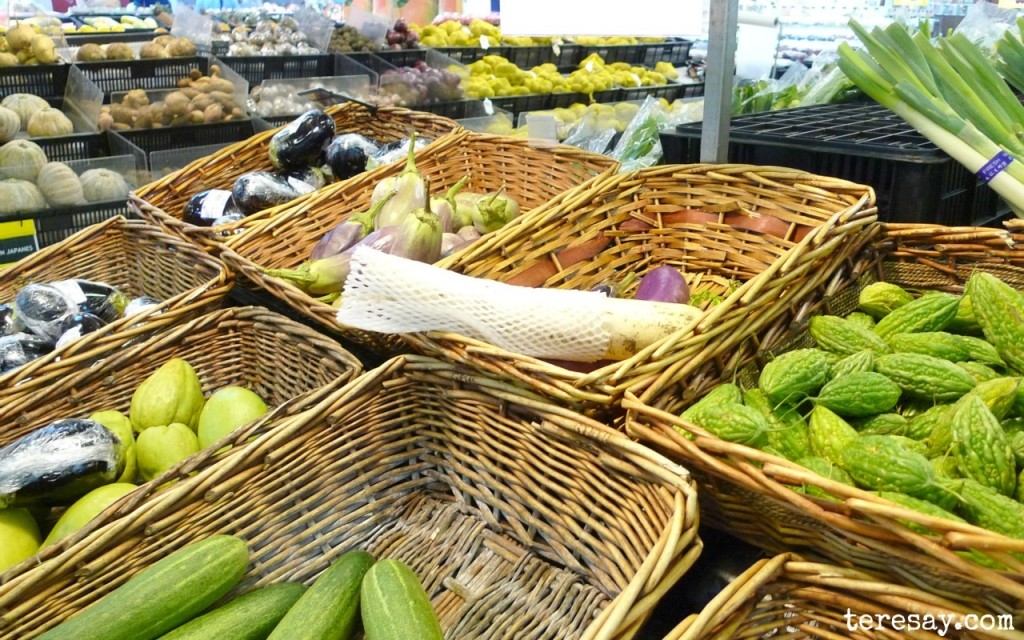The Vegan Lifestyle

The Vegan lifestyle is not quite easy to understand. Veganism is more commonly defined as the practice of abstaining from consumption of animal products. Upon deeper inquiry , we will find out that it is not merely a diet. For some, it is a belief, a religion,or a lifestyle. As the strictest form of vegetarianism, it requires avoiding animal derivatives as well in other things that we use such as clothes, shoes, medicine, cosmetics, toiletries, and household items.
History of Veganism
The British Vegan Society was established in November 1, 1944 as a break-away movement of the British Vegetarian Society. The founders, Elsie Shrigley and Donald Watson encouraged like-minded non-dairy vegetarians to form a new group. It eventually also removed eggs among its allowed food and further extended the meaning of veganism to include non-exploitation of animals. Watson coined the word “vegan” by using the first three letters and last two letters of the word “vegetarian” in recognition of its roots. The American Vegan Society adopted the “ahimsa” concept which promotes avoidance of violence against living things.
With its stand on the protection of animals quite clear, it is evident that veganism goes beyond a diet fad. The reason for avoiding the use of animals and their derivatives is based on respect for the rights of other living things. The Greek philosopher Pythagoras believed that eating animals was tantamount to eating human souls.
Vegetarian vs Vegan Lifestyle
Veganism traces its roots to vegetarianism which can come in many types. Semi vegetarians eat plant-based food most of the time but eat meat every once in a while. Lacto-ovo vegetarians abstain from meat but eat dairy products and eggs. Lacto vegetarians stay away from meat and eggs but eat dairy products while ovo-vegetarians allow for eggs but not meat and dairy products. Vegans do not eat meat and all foods containing animal derivatives such as gelatin or traditional cakes. Butter is made using animal fat while sugar is processed using certain animal substances. The prohibition of vegan food choices not only means the actual ingredients used in a product but also extends to the use of animals in testing or producing it.
Types of Veganism
There are several types of veganism which include, Dietary Veganism, Ethical Veganism, and Environmental Veganism. Dietary vegans are the most common as the principle only extends to consumption of plant-based food. Ethical vegans adopt veganism as a philosophy and a lifestyle. These vegans will be concerned whether a food product has been produced using any animal product.
Environmental vegans are specifically against animal agriculture which they believe is directly linked to land degradation, water pollution , and climate change. Factory farming where animals are exposed to cruel circumstances such as crowded cages and extreme stress before death is likewise not considered in line with vegan principles. So are scientific tests done on animals.
Raw vegans prefer plant based food that did not undergo cooking or processing above 48 degrees Celsius. These would include fruits, nuts, seeds, herbs, grains, plant oils, and fruit juices. Raw vegans believe that the balance of micro-nutrients in food are destroyed by cooking.
Benefits and Risks of a Vegan Lifestyle and Diet
A well-planned and sensible vegan diet can provide protection from the development of certain degenerative diseases such as heart disease. Vegan foods are low in fat but high in fiber and various nutrients. There are however certain risks associated with lack of specific nutrients that are usually obtained from animal-based food.
Vegans will have to take supplements to counter expected deficiency in Vitamin B12, iodine, calcium, Vitamin D, iron, and omega 3 fatty acids. The adoption of the vegan diet especially by babies, young children, and pregnant mothers is best done with the guidance of a professional doctor. A strict vegan diet may put undue stress on them when not done properly.
Animal Advocacy
The Vegan lifestyle cannot be fully realized without a strong stand against cruelty to animals. Vegan practitioners will have to stay away from furs, feathers, silk, and leather for their personal belongings since these materials obviously come from animals. People for the Ethical Treatment of Animals (PETA) is the main organization involved in promoting the cause of animals.
My Say
The vegan lifestyle offers an option not only for healthy living but also in the way humans treat animals and other living things on earth. Strict adherence to all its presented principles may not be for everyone but there are still important issues that can be considered by all. This is with regards to the need to take better care of our bodies and the reality that humans share this world with other living things.
















che
I didn’t know there’s a difference between vegetarian and vegan. Thank you for this enlightenment. I began to really love vegetables here in Germany as a large percentage of land here is used in agriculture. I was amazed how they eat paprika just like an apple. 🙂
Teresa Martinez
Didn’t know it either before.
Mary Anne Vinzon
Vegans and the vegetarian have their discipline with them.It’s hard to eat and use vegetables alone in a lifestyle.
Teresa Martinez
Yes, veganism can be a pretty strict lifestyle so it has to be done voluntarily.
dickvinced
i salute to those who adopt the vegan lifestyle.. determination is the key for this.
Teresa Martinez
Veganism really requires much discipline and acceptance of the consequence of the choice.
Nancy
I once got confused between the difference of vegan and vegetarian and that’s how I get to know pretty much of the things you have mentioned here. Thanks to the comment on my Facebook wall post… and now this… 🙂
Teresa Martinez
It can be quite confusing really.
JessicaWCassidy (@wifetoalineman)
I love to eat veggies but am not vegan 🙂 I cannot live without eating meat 🙂 Eating veggies are very healthy 🙂
Teresa Martinez
It would seem that loving veggies is not enough to adopt veganism so most of us will find it difficult to commit.
jheylo
it takes determination and consistency to become an official vegan 😀 i know it’s hard especially to those folks who loves meat but this is good and beneficial for our body. Healthy lifestyle give us longer life span than those who are living unhealthy lifestyle.
Teresa Martinez
It is difficult to commit to veganism so we can just all try to eat as healthy as we can.
Marie
A kind diet, a kind lifestyle….truly admirable no? It’s doable but really needs a lot of determination…great read as always, thank you!
Teresa Martinez
Thanks. Most of us cannot even imagine adopting veganism so those who seriously adopt it for the right reason are quite commendable.
Gven-Rose
I like vegetable but I don’t think I can leave with it, I need fish and meat once in a while..:) but perhaps a day of vegan diet won’t hurt..:)
Teresa Martinez
I think that is the best way to go for people like us who are not ready to plunge head on with veganism.
joy
EAting vegetables can be healthier than people who eats meat. I wish i could do the same but it is always the matter of getting used to it. Maybe, it will take years and years for me to be able to became a vegan hehehe
Teresa Martinez
That would probably be applicable to many of us.
Chubskulit Rose
I miss those ampalaya, over here we can’t buy it unless we go to the asian market which is very far from us.
Teresa Martinez
Those are the things we take for granted when they can easily be had and then miss them when they become scarce and hard to get.
Chie
I can’t imagine living a vegan life. It must be a tricky, hard, boring life as they must check everything from foods to things that aren’t made of meat or animals. But since it is their belief, it’s worth a respect.
Teresa Martinez
Every belief should be respected except those that intend to hurt or harm.
Marms
Nah, honestly, I don’t care about this Vegan thing…people need protein from meat to be healthy.
Teresa Martinez
As they say, to each his own as long as no one gets harmed in the process.
Badet Siazon (@badudets)
How I wish I have the strength and discipline to have a vegan diet. Although it’s healthier, I can’t live without meat.
Teresa Martinez
It is rather difficult to follow a strict vegan diet although it is doable as shown by many.
Les
I’m not sure if I can give up eating meat and poultry. But I made a promise to myself that as soon as I reach the age of 40, I will begin a vegan lifestyle.
Teresa Martinez
Even if you’re still eating meat before that time comes, you can always try to choose the healthier options.
sigrid @ weightymatters
I would like to be a vegan for durations–I mean, just like for a week, so that I can cleanse my body. Whenever can I start it!
Teresa Martinez
Regular cleansing of the body of built-up toxins caused by food we eat may be a way towards opting for healthier diets.
rj's mama
I don’t really believe in taking so much supplements. So the real thing is still the best thing for me -meat, veggies and fruits.
Teresa Martinez
Natural food is always best.
ralph
i was thinking you misspelled the word… until you differentiate it from being vegetarian… great info. Yahweh bless.
Teresa Martinez
For sometime, I thought vegetarianism and veganism are the same.
Ian Joseph
I couldn’t stand their practice, although they are right, but God created and designed our teeth to eat both animals and vegetables and fruits. But I appreciate their cause.
Teresa Martinez
There has been considerable discussion about the relation of human teeth to the human diet although I believe nothing conclusive has been arrived at.
markpogi
I’m not sure if I could adapt to this kind of lifestyle especially when we have herds of cattle in our province. But still I hope one point in time I could go vegan even for a month or a year.
Teresa Martinez
Our diets are really a matter of personal choice. We cannot expect to live it if we are forced to do it.
leadershipforfilipinos
They say Vegans have a stronger sense of their surroundings. I hope I can be a vegan but I have tried and miserably failed
Teresa Martinez
Veganism requires much from the practitioner and one can keep trying in spite of failures.
Jhoveleen (@hopeful_10)
I cook foods like the way Vegans cook. I never been to Vegan but how nice to be there.
Teresa Martinez
It’s good you’ve been practicing healthy cooking all this time.
Marri Bermudez
The idea seems to be very difficult to do but I’m sure there are people who want to adopt this kind of principle.
Teresa Martinez
There are those who choose to adopt it for health or ethical reasons. The difficulty can be overcome by the level of commitment.
abanhag
I have Vegan friends. one is for eithical reasons and one is for health reasons. both had a stint at PETA. some of their dishes are delicious anyway while using vegie meat as substitute.
Teresa Martinez
That is quite interesting- actually knowing people who are practicing vegans.
Chef Jasper
good clarification of the difference between the two. then i would say i’m a vegetarian.
Teresa Martinez
Good for you, I hope I can find way towards such path.
Angie Vianzon
At first I thought that vegetarians and vegans are the same but they’re both different in some ways.
With the benefits that being a Vegan has to offer I still don’t think I can manage to become one.
Teresa Martinez
At first I thought as well, then I started researching since I was thinking there is more reason to the different spelling.
Ted Claudio
It must be really tough to become a vegan. Even being a vegetarian is hard enough. I think it really requires a lot of determination and faith.
Teresa Martinez
I suppose it is but with the right reason and motivation, it can be done.
Renz Bulseco
Wow! I bet it’s really hard to become a vegetarian!!! Not a fan of veggies. Toinks
Teresa Martinez
If really desired, one can start by being a semi-vegetarian and then move on to the next level. Many people say that we can acquire a taste for vegetables with the right motivation.
Adeline Yuboco
Great post! While I do love my veggies, I don’t think I’ll give up on eating meat anytime soon. 🙂
Teresa Martinez
Same here, I don’t think I’m ready yet to adopt such a strict diet although I am really looking into finding a healthier option than my present diet.
amayachika
Oh! I love to try this. Thanks for sharing this with us Ms. Teresa.
Teresa Martinez
I’m glad this post interests you.
lovemindanao
human are omnivore .. we are created to feed on both animals and plants … but being a vegan is a choice … but we cannot take the fact that there are minerals and needed sustenance from animals .. that is the reason why we are omnivores… we need both
Teresa Martinez
There are many conflicting views about this which is probably the reason why there are so many proposed diets and lifestyles to follow.
papaleng
Whuss, being a vegan really requires discipline. I think i can’t be one. I can’t part way with my lean meat. Just asking, are those health supplements in the form of organic ones ?
Teresa Martinez
I believe there are organic and synthetic supplements available in the market.
Maricel
There was a time when all I ate was vegetables. It was for health reasons, and it was effective. I would like to go back to this kind of diet, but I’m finding it really hard. Given your definition of veganism, I might actually find that even more challenging. And by the way, thanks for a very informative post!
Teresa Martinez
I’m glad you found this post informative. Information provides us more options in life.
seny wilson
Man! that’s hard..although its the healthiest and most natural but I just can’t imagine my self eating nothing but vegetables I got to have some meat..lol
Teresa Martinez
Veganism requires much from practitioners and backsliding is a common thing because of the difficulty in strictly following. It is necessary therefore to go into it willing and determined.
Archie M. de Lara
I always wanted to start being vegan. Put I need some determination and support from family.
Teresa Martinez
Veganism is not easy. You are right, it requires the support of family.
ventocoseuss
I never knew that being Vegan includes clothing and household items too.. That’s nice to know.. But hmmmmmm.. I don’t think I can do this lifestyle, but it’s worth a try. 🙂
Teresa Martinez
Yes, that is why veganism is considered the strictest form of vegetarianism. It requires practitioners to extend the practice beyond the diet.
Franc Ramon
I admire people who can have the vegan lifestyle for their discipline and advocacy.
Teresa Martinez
It is quite a feat to be a successful vegan without feeling deprived.
Iam Herbert
I dont think I can survive being a vegan for long. As much as I want is having mixed stuff to eat
Teresa Martinez
I don’t think that I can do it as well but am just glad there are such options.